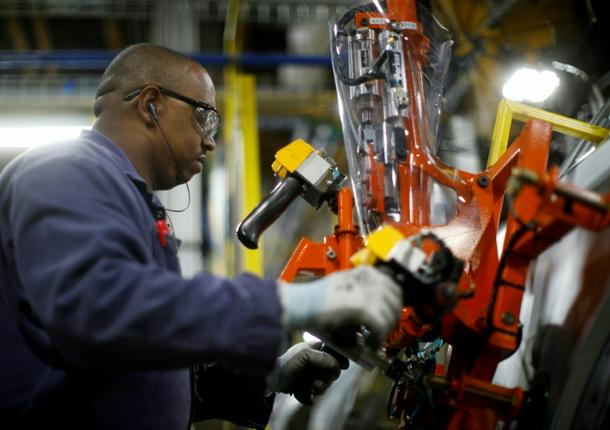
Donald Trump's announcement was widely criticized by US trade associations
Washington (AFP) - President Donald Trump’s tariff announcement on Wednesday was widely panned by US business lobbying groups, who voiced concern about the impact of the sweeping new duties on their operations.
During a speech in the White House’s rose garden, Trump unveiled a baseline 10 percent tariff against almost all US trading partners in the world from April 5, and an additional top-up rate from April 9 for other countries currently imposing tariff and non-tariff barriers against US companies.
Trade groups reacted with dismay to the measures, which would see most goods imported from China, for example, facing an additional tariff totaling 34 percent on top of existing levies.
“Applying new tariffs at this scale will create change and disruption that restaurant operators will have to navigate to keep their restaurants open,” the National Restaurant Association said in a statement.
“The stakes for manufacturers could not be higher,” said Jay Timmons, the president of the National Association of Manufacturers.
“The high costs of new tariffs threaten investment, jobs, supply chains and, in turn, America’s ability to outcompete other nations and lead as the preeminent manufacturing superpower,” he added.
Alongside China, the European Union, India, and several other top US trading partners will also face new tariffs of at least 20 percent from April 9.
“These broad tariffs are a tax increase that will raise prices for American consumers and hurt the economy,” US Chamber of Commerce chief policy officer Neil Bradley said in a statement before the tariffs were unveiled.
In a recent analysis, Yale University’s Budget Lab estimated that a 20 percent across-the-board tariff on imports could cost the average US household at least $3,400 – a painful cost-of-living adjustment for most Americans.
“President Trump’s sweeping global and reciprocal tariffs are massive tax hikes on Americans that will drive inflation, kill jobs on Main Street, and may cause a recession for the US economy,” Consumer Technology Association chief executive Gary Shapiro said in a statement.
“These tariffs will raise consumer prices and will force our trade partners to retaliate,” he said.
Other reactions came from National Association of Home Builders chairman Buddy Hughes, who said Trump’s tariff announcement would “undoubtedly” raise some construction costs, and from the US wine Trade Alliance, which said in a statement that the measures on imported wines would harm US businesses “far more” than their foreign counterparts.
“Damage to the U.S. economy will increase the longer the tariffs are in place and may be exacerbated by retaliatory measures,” the Business Roundtable, which represents the interests of chief executives, said in a statement.
Despite the widespread condemnation, some lobbying groups were more positive about the announcement.
“Today’s trade action prioritizes domestic manufacturers and America’s workers,” said Scott Paul, president of the Alliance for American Manufacturing.
“These hardworking men and women have seen unfair trade cut the ground from beneath their feet for decades,” he continued, calling Trump’s announcement “a necessary step in the right direction.”